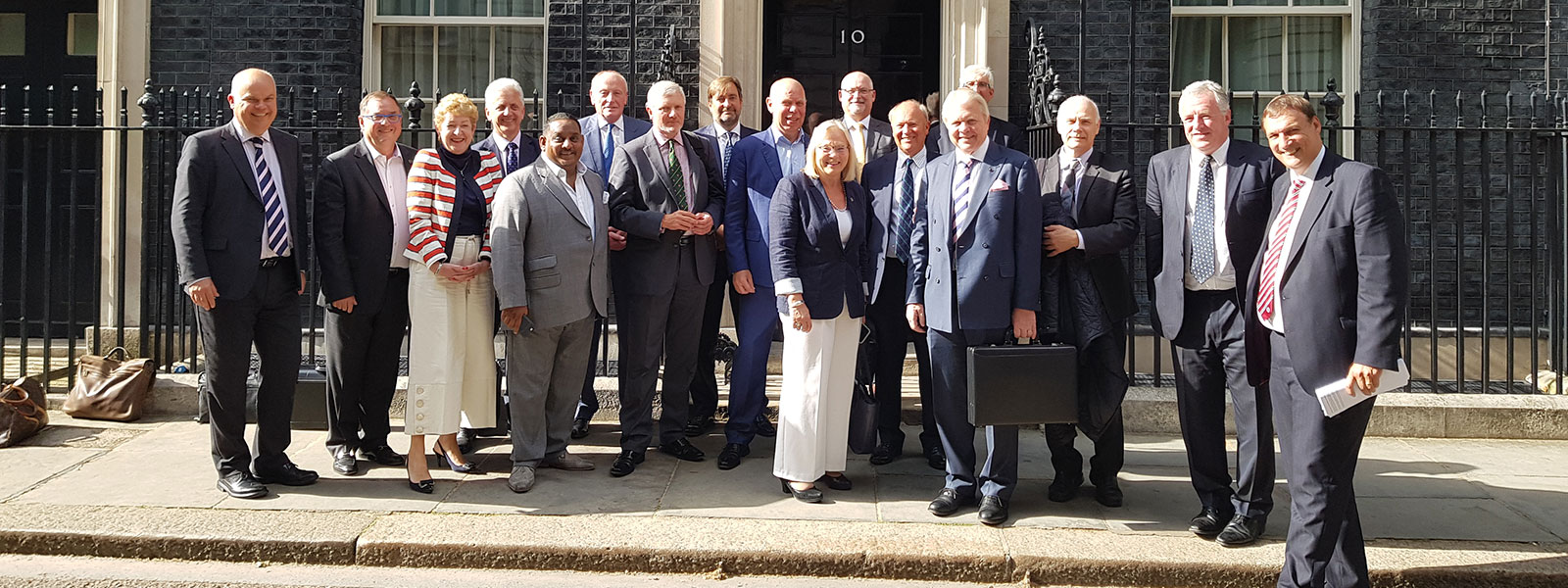The Prime Minister met with the leaders of England’s Local Enterprise Partnerships (LEPs) yesterday to celebrate their achievements to date and to map out key areas for cooperation under the UK’s Modern Industrial Strategy.
19 June marked the first meeting of the Prime Minister’s Council of LEP Chairs, made up of business leaders representing the 38 Partnerships. Talks focussed on where LEPs carry maximum impact: delivering the objectives of the Modern Industrial Strategy in local areas, and investing in the skills people and businesses need.
Welcoming the Council of LEP Chairs, Prime Minister Theresa May said:
“Local Enterprise Partnerships play a vital role in supporting businesses and innovation across England. From the New Anglia aviation academy – the first of its kind in the UK – to Enterprise M3’s 5G innovation centre, LEPs are developing skills, delivering infrastructure, and securing investment.
That’s why our Modern Industrial Strategy is clear that they must continue to play a crucial role in our plans to deliver further growth in local economies.
Today’s first meeting of the Council marks a milestone in this partnership. By working even more closely together, we will continue to maximise our efforts in creating jobs, growth and investment right across the country, delivering long-term, meaningful results for local communities.â€
Co-chair of today’s first meeting and LEP Chair for Greater Manchester, Mike Blackburn OBE, said:
“Today was a golden opportunity for business leaders to sit down with the Prime Minister and identify the key action areas LEPs can help government with, and highlight current achievements.
“The government’s commitment to ‘place’ based development and growth plays to the core strengths of all LEPs, and our local strategies will exploit those strengths of locality and geography.
“This is part of an ongoing dialogue between LEPs and government as we help build an ambitious programme for long-term economic growth. Our strong partnerships of private and public sector leaders and track record of delivery, mean we have an exciting opportunity to help the government build an economy that works for everyone, no matter where they live.â€
At today’s meeting, LEPs reinforced their commitment to help deliver a national Industrial Strategy, using their strengths and expertise to lead local strategies for economic growth and partner more effectively with local government.
Recent successes include the new Digital Skills Pilots recently launched in the Heart of the South West and Lancashire; Fuller Working Lives strategy in the North East which is helping businesses maximise the skill sets of the 50+ workforce, and the Growing People Programme in the South East Midlands which is building a talent pipeline to support and develop the skills our modern economy will require in the future.
From fostering partnerships between businesses and institutions to enable vital research, to spearheading cutting-edge initiatives at the local level in clean growth and supporting major areas of expansion such as the medical technologies sector, LEPs are playing a crucial role in the delivery of the modern Industrial Strategy, ensuring that the UK remains at the forefront of innovation.
Chair of the Heart of the South West LEP, Steve Hindley CBE DL, said: “I am delighted to be part of this new era for the LEPs; in meeting the Prime Minister and other senior cabinet members, we’ve raised the profile of our collective voice and our role in generating prosperity for UK plc.
“Since the Heart of the South West LEP was set in up 2011, we’ve generated a programme of investment worth nearly three-quarters of a billion pounds; with over 60 projects either completed on underway to generate growth through capital builds and investment in skills; we’ve developed effective partnerships with our regional partners such as Nuclear South West and the Rural Productivity Commission; and we’re developing a robust and ambitious proposition to rival that of our friends in the north under the banner of the Great South West Partnership.
“I look forward to developing our relationships with Number 10, so that we can leverage the crucial strategic and financial investment will enable the Heart of the South West to raise productivity and prosperity for all.â€
The Council of Local Enterprise Partnership Chairs was announced in the 2017 Industrial Strategy White Paper as a new forum for LEP business leaders to help shape national policy decisions and ensure closer cooperation with the Government on Industrial Strategy objectives.


